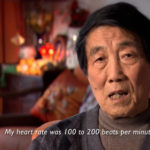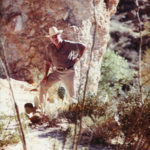
An old friend from the East Coast contacted me recently to see if I had any career advice for her friends’ son, a recent film school graduate who was trying make it as a filmmaker in New York City. I told my friend that, though my experience as a freelance crew person in the Bay Area wasn’t directly applicable to his efforts at finding production clients in New York, I would be happy to offer some general advice. Here it is.
Hi,
Nice to hear from you. As I explained to our mutual friend, I’m not sure how to advise you, other than telling you a bit about my career.
A little background:
Though I grew up on Long Island, I’m not too familiar with the world of production in New York City, having worked my entire career in the SF Bay Area market. I did do some shooting in New York at times, but primarily for California-based clients, usually Silicon Valley companies. And I worked as a freelance director of photography, not producing films as a production company, so my advice will be pretty general.
After graduating from Dartmouth with a major in government, I taught high school for two years in Vermont, then applied to several film schools. I got into one, at Stanford, and emigrated to California for good. Stanford was great. Small program. The one production teacher at that time had been a rerecording mixer at the National Film Board of Canada, and, though he didn’t know too much about lighting and camerawork, he taught us a lot about sound and professionalism, and those were the lessons that stuck.
After Stanford, I freelanced in the Bay Area for nine years, then took a (very rare) staff job as a DP for One Pass Film and Video in SF (now defunct). Here I learned about working as a DP (rather than a one-man band with a camera on my shoulder), video production (I had been all film up till then), multi-camera productions, sound stage work, etc. When One Pass realized they had a maturing work force who were having babies and demanding more and more benefits, they encouraged all of us staff production workers to leave (without layoffs), and promised to hire us back as freelancers.
Mostly they did so, until the place burned down a few years after I left. But because One Pass was such a huge place (about 75 employees at its peak) with a large client base and multiple shoots per day, every day, I got to know everyone in town while I worked there, and that set of contacts served me well for the next 20+ years. I retired about a year and a half ago.
When I was teaching at San Francisco State and other places, I encouraged my students to develop websites to showcase and publicize themselves and their work, especially early on when it was not common for everyone to have a site (I set up my first web page in 1999-2000). In those days, it was still important to have a demo reel or show reel you could hand to someone on a tape or a DVD, but obviously that’s not as important now, as long as your work is viewable online.

As of course you know, social media are very important in the current scheme of things. Any company should have a Facebook page, and perhaps a Twitter feed and an Instagram presence as well (one of my kids told me the other day that I’m really a millennial in boomer’s clothing, which I took as a compliment).
In terms of how to find work and clients, of course you’ll have to figure that out in your market. When you do get clients, especially good one who do work that looks terrific and/or have decent budgets, cultivate them. Wow them with your hard work, your great attitude, your creative and exciting results. Court them. Take them to lunch or dinner, send them presents, make them feel special. One good client can supply you and your company (especially while you’re still small) with steady work for a long time. Get to know them and stay in touch. At appropriate moments, ask them about themselves. Make notes about their kids’ and spouses’ names and special events, contact them at special times, stay in touch between projects, call them to show them your newest and best work for others.
Early in my career, I sent out resumes (with cover letters) by snail mail, to everyone I met whom I thought might hire someone with my skills. And, though it was difficult, I made lots of cold calls, to people I didn’t know, trying to get to show them my demo reel. When I first went abroad to do some shooting, I made sure to keep samples of the work (not easy in the old days of film prints, which were expensive to make copies of).
Later, when I left One Pass, I made a mailing list of nearly everyone I knew in the business, made up a flier (about the fact that I was going freelance again), and sent it to the whole list. I tried to make it creative and funny, and it got a good reaction. Years later, people told me they remembered that mailing, mostly because, in the middle of a list of laudatory comments about me, I quoted a real letter from a client saying, with tongue in cheek, that I was “one of the most obnoxious and anxiety-ridden individuals I have ever had to work with.”
Over the next few years, I sent out several similar mailings, each with a good attitude and a sense of humor. People like to have fun, and promo materials can be terribly dry and boring, even when they’re well-crafted films and/or beautiful footage. About five years after One Pass, I was hired to do a shoot on six continents (ten countries) over a seven-week period.
I bought an Arri camera for that project and afterward sent out a mailing to 800 of my closest friends that said “Bill Zarchy Finally Bought a Camera and He’s Already Schlepped It Around the World,” complete with photos, a map of our travels, a prose description of the project, and a resume, all in a four-page B/W mailer. That kind of thing attracted attention. I’m sure you get the idea.

As much as you can, try to be patient. Believe that if you work hard and do good work, you’ll succeed. Of course, that’s easy for me to tell you from 3000 miles away as you’re trying to pay the rent and keep going with a startup production company. It took me several years to get established as a DP. I did work as a camera assistant for a while, but I refused to do sound and grip work, choosing to stay in the camera department. I also bought my first camera (a CP-16R) early on, and I found that owning a camera gave me street cred as a shooter. Think about what might work to give you credibility as a production company in a similar way.
I was also fortunate to meet the woman whom I would eventually marry, while we were both in film school at Stanford. When we graduated, she started to freelance as an editor, and we learned an eternal truth: a short shoot, even a one-day shoot, can supply days, weeks, or even months of editing work. So Susan provided the bulk of our income for the first few years, which helped me get established as a DP. And I didn’t have to be a grip or drive a cab.

One more thing: unless you go to work for someone else on a “real job,” meaning a staff position at a company, your parents will never really understand what you do. Or who you work for. I used to tell people that I was like a plumber. People called me when their sinks dripped or their toilets broke (figuratively speaking). They needed a job done, and I usually worked for them for a short time. Hopefully they’ll call you again, the next time they have a problem with their toilets or sinks.
But after I had been getting by as a freelance cinematographer for nine years, thinking my loving, wonderfully supportive parents understood my career, I was hired as the staff DP at One Pass. A short time later, one of my folks’ friends told me, “Oh, your mother is so relieved that you finally have a job!” One of the hardest thing for a parent (or anyone!) to grok about freelancing is that, if you don’t work, you don’t get paid. Neither of my kids wanted a freelance life. One is a school speech therapist. The other is a lawyer. Many, many of my jobs lasted one day.
I hope this helps a bit. I was very lucky to meet some great people early on in my career, some directors who took me along on fantastic journeys, both creatively and travel-wise. I shot concerts with the Grateful Dead and Weird Al, interviewed six presidents, and got to travel the world and meet and work with people in many countries. One of my very few regrets about retiring is that I don’t get to see my friends in the business very often. Film people are amazingly bright and creative and fun. It can be a very rewarding life, and I wish you all the best.
I’ve written a book about my work and travels, called Showdown at Shinagawa: Tales of Filming from Bombay to Brazil. Send me your address, and I’ll send you a copy. It’s not really about finding work or freelancing, but you might find some of it relevant or interesting. And do stay in touch and let me know how you’re doing.
Best wishes,
Bill






